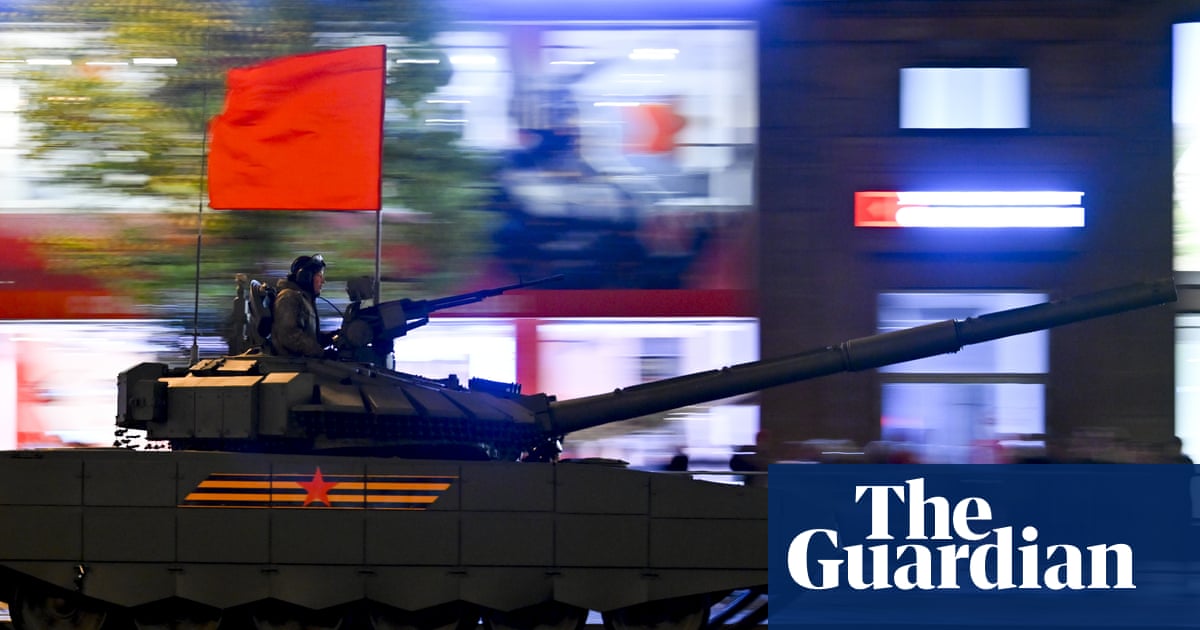‘Z literature”, a subgenre of Russian fantasy fiction characterised by nationalistic, pro-war storylines, has been on the rise since Russia’s full-scale invasion of Ukraine began three years ago and may be pushing young readers towards enlisting in combat.
Z literature – named after the “Z” symbol of support for the invasion – often features popadantsy, or “accidental travel” narratives, involving a protagonist being transported to pivotal moments in Russia’s past and using modern knowledge to intervene and alter history in Russia’s favour.
“Providing a powerful strain of jingoistic nostalgia, these narratives satisfy readers’ yearning for the lost superpower status by rewriting the past,” according to Mediazona, the independent Russian news outlet which reported on the boom in Z literature in May.
Z literature is targeted at young men who will soon be the focus of enlistment drives, said Colin Alexander, a senior lecturer in political communications at Nottingham Trent University.
“In times of war, all countries will try to inspire those demographics targeted [for] soldiering through a range of propaganda strategies.” While news broadcasts are often focused on by propaganda researchers, “the reality is that publics are most inspired to serve the war effort through storytelling entertainment media and that excites and inspires. Russia is certainly using these well-trodden wartime emotional propaganda techniques, but it is important to state that wherever there is war we tend to find them.”
These “Russian hyper-nationalistic genre novels with their outsize heroics are significant because they are made outside the formal propaganda apparatus of the state,” said Nicholas O’Shaughnessy, emeritus professor of communications at Queen Mary, University of London. “They are pieces of individual entrepreneurship but highly predictable, as if from a common template.”
While the books “connect of course with Hollywood hyper heroics” such as Captain America, and the “literature imbibed by Victorian British schoolboys” such as the novels of GA Henry, “the difference lies in their crudeness and the extent of their hypernationalism which takes them into the realms of fantasy. They retain not one shred of credibility.”
“They offer a binary world of hateful foreigners and wonderful Russians – or at least, Russians who become great after learning the lessons of experience,” he said.
Books falling in the Z literature subgenre, according to Mediazona, include Crimean Cauldron by Nikolai Marchuk, in which Ukrainians are portrayed as Nazis and the whole world has turned against Russia, and White Z on the Front Armour by Mikhail Mikheev, about a Russian agent who enters Ukraine after the full-scale invasion begins and apprehends a western spy.
“The market is clearly young and male, but what is stunning is the coarseness. It would be funny if it were not really real. [The books] are tapping into a terrible appetite for destruction, deep yearnings for revenge and a strange view of the Russians as a kind of herrenvolk, a unique people. One source of this mythology is the belief that second world war victory was almost entirely of Russian authorship,” said O’Shaughnessy.
after newsletter promotion
“So these are master-race fantasies which to work require the diminution of other peoples, their subjugation – and arousing hatred is the lubricant for this.”
Another example of Z literature, reported Mediazona, is PMC Chersonesus by Andrei Belyanin, a popadantsy story which sees a former marine on a mission to return artefacts to Crimea with a team resembling Aphrodite, Heracles and Dionysus. Along the way, they encounter other figures from Greek mythology and zombie Nazis. Their final mission involves stealing Scythian gold from the Netherlands – a plotline nodding to the real-life loaning of gold to an Amsterdam museum pre-annexation, which the Dutch supreme court ultimately decided should go to Ukraine, not Crimea.
“Five years from now, these readers will be soldiers,” Jaroslava Barbieri, a researcher at the University of Birmingham, told The Telegraph. “The Kremlin isn’t trying to appease aggression – it’s cultivating it.”
All healthy men aged between 18 and 30 must complete one year of service in the Russian military. Though conscripts in theory cannot serve on the frontlines, there have been reports of them signing combat contracts under duress.
